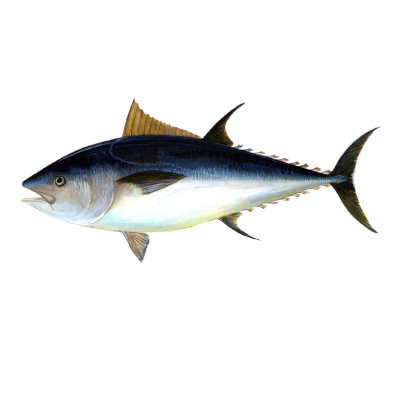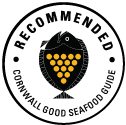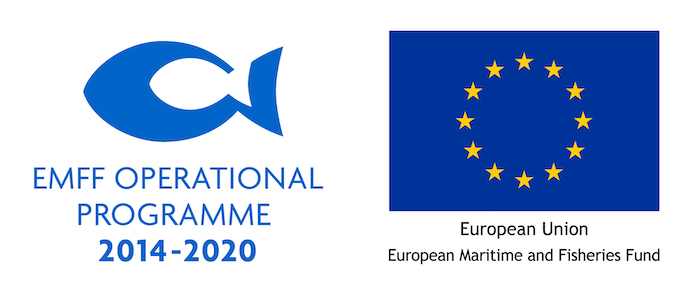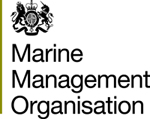

The Atlantic bluefin Tuna, Thunnus thynnus, is a giant of the fish world growing to a maximum size of 3 meters and weighing up to 250 kilos. These torpedo shaped fish are built for speed and power and travel huge distances in the open ocean. Unlike most fish they are warm blooded with heat generated in their powerful swimming muscles that enable them to accelerate rapidly, and gives them improved cognitive power and reactions. They are incredible predators and are at the top of the oceanic food chain.
Atlantic bluefin tuna are a fast simming and wide ranging species that has always occasionally ventured into UK waters but they became an extremely rare sight through the latter half of the 20th century when this higly valuable species was fished near to extinction. Thanks to improved international management stocks appear to have recovered. Bluefin tuna appear in Cornish waters in mid-summer and are seen well into autumn. From 2021 the UK have had a small quota of blue fin tuna meaning that it is now legal for licenced fishermen to land them for human consumption. A stritcly monitored and limited line caught fishery has been created and at present line caught fish is the best option in terms of sustainablity. We hope that this newly opened fishery continues to be well managed and rules, both locally and internationally are strictly enforced as this is a top predator that is very easily over-fished and has only recently recovered from the brink of near extinction.
Best choice is line caught tuna, always check it was caught by a licenced fisher.
In 2021, 1.3 tonnes of Atlantic Bluefin tuna was landed to Cornish ports with a value of over £4000.
Updated April 2024

Cornwall
A commercial hook and line fishery for Atlantic bluefin tuna was opened in 2023. Number of boats are limited and a strict quota prevents overfishing.
Learn moreCornish waters
Commercial fishers who accidentally catch Atlantic bluefin tuna are allowed to land one fish per boat per day under new rules from MMO 2021
Learn moreCornish Waters
Commercial fishers who accidentally catch Atlantic bluefin tuna are allowed to land one fish per boat per day under new rules from MMO 2021
Learn moreCornish Waters
Commercial fishers who accidentally catch Atlantic bluefin tuna are allowed to land one fish per boat per day under new rules from MMO 2021
Learn moreCornwall Good Seafood Guide rates fish on sustainability using a scale of 1 to 5.
1, 2 and 3 are recommended, Fish to avoid are rated 5.
We use the system devised by the Marine Conservation Society (MCS) so our scores are comparable with the scores produced by MCS for the UK and fisheries from all around the world. For more information on scoring click here.
Tuna belong to the mackerel family, Scombridae. They are large, oceanic fish and are seasonally migratory, some making trans-oceanic journeys. Able to tolerate both warm and cool temperatures, bluefin tuna range throughout the entire north Atlantic and adjacent seas, (primarily the Mediterranean Sea) and can frequent depths to 1000m. Despite this thermal tolerance, a recent analysis of present vs. historical ranges concluded that Atlantic bluefin tuna has shown range contractions of 46% since 1960 - more than any other pelagic species . Despite poorly understood movements from east to west, a distinction in populations is made between the two regions. Interestingly, life history characteristics differ greatly between them. In the Mediterranean, bluefin tuna is assumed to mature at approximately 25 kg (age 4), whereas in the Gulf of Mexico in the West Atlantic, maturity occurs at approximately 145 kg (age 9). Northern bluefin grow slowly compared with other tunas and billfish but can reach more than 450cm in length and 680kg in weight with a maximum age of approximately 40 years. Spawning occurs from April to June in the Gulf of Mexico and June to August in the Mediterranean.






Cornwall Good Seafood Guide is underpinned by the Marine Conservation Society (MCS) Good Fish Guide. The first UK consumer guide to sustainable seafood. For more information visit www.fishonline.org
Cornwall Good Seafood Guide is here to help us all make sustainable seafood choices. Choices that will help us keep the oceans healthy and Cornish fishers' futures safe. This website is funded by Cornwall Wildlife Trust. If you would like to make a meaningful difference to the health of our oceans, please consider making a donation to the Cornwall Wildlife Trust Ocean Emergency fund. Your donation will help safeguard these remarkable environments, ensuring that they continue to thrive for generations to come. Together, we can be stewards of the seas and champions for a healthier, more sustainable future.